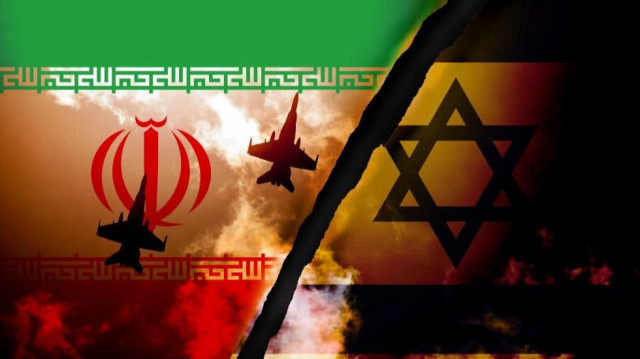
While the ceasefire between Israel and Iran has delivered a brief period of calm, it remains inherently unstable. For it to hold over the long term, far more than political signaling will be required
On June 23, US President Donald Trump announced that Israel and Iran had agreed to a "complete and total ceasefire" following Iran's missile attack on the US military base at Al-Udeid in Qatar. Shortly after the announcement, Israel accused Iran of violating the ceasefire and declared the need to respond. Trump, however, cautioned Israel against escalating the situation and called on its pilots to stand down. The ceasefire brought an end to 12 days of intense military confrontation between the two countries.
- Disputed outcomes of the crisis
While the ceasefire has temporarily stabilized the situation, its durability is uncertain. It rests precariously on shifting diplomatic, strategic, and regional dynamics. Although Iran claims that it defeated both Israel and the US following its missile attack against Tel Aviv and the telegraphed strike on the US base, facts on the ground tell a very different story. Out of the 650 missiles fired at Israel, only around 30 reached their targets, mostly damaging infrastructure and killing 29 people.
Israel, on the other hand, has managed to kill around 38 senior Islamic Revolutionary Guard Corps (IRGC) and intelligence commanders, including high-ranking generals along with assassinating 11 senior nuclear scientists. The Israeli assault wiped out Iran's air defense systems and established air superiority and dominance over Iran's airspace in two days. Furthermore, it severely damaged Iran's nuclear facilities, destroyed multiple regional IRGC headquarters and military bases, and degraded Iran's missile program along with its weapon stockpiles.
Accordingly, Iran's rapid defeat and the current imbalance of power makes the potential for renewed conflict an ever-present possibility. Both Israel and the US have openly indicated their readiness to strike Iran again if necessary. Israeli Defense Minister Israel Katz has instructed the military to develop an enforcement plan aimed at preserving Israel's air superiority, curbing Iran's nuclear and missile programs, and retaliating against Iranian-backed militant groups. Trump, too, has not ruled out future airstrikes against Iran.
- Barriers to lasting democracy
For now, Iran appears interested in preserving the ceasefire, likely to assess the damage sustained and determine how best to recover. Domestically, the regime's legitimacy and credibility—even among its loyal supporters—has been significantly damaged by the recent conflict. Survival and internal stabilization are likely to take precedence over any renewed confrontations with foreign actors. Similarly, Trump seems intent on maintaining the ceasefire, viewing it as a stepping stone toward renewed nuclear negotiations.
However, the ceasefire's endurance is far from guaranteed. One major risk lies in Iran's possible refusal to engage in talks with the US. Tehran has historically been skeptical of negotiations under pressure, and if it perceives the ceasefire as a temporary tactical move rather than a strategic opportunity, meaningful diplomatic efforts are unlikely to progress. Without dialogue, even a minor incident could reignite hostilities.
Another possibility is that Iran might enter talks but deliberately drag out discussions without reaching an agreement. Such stalling tactics could temporarily preserve the ceasefire but are likely to frustrate both Washington and Tel Aviv. Israel, already wary of uncertainty, may choose to launch preemptive strikes if it interprets the situation as strategic deception or stalling.
A further point of vulnerability lies in the content of any future nuclear deal. Should Washington and Tehran reach an agreement that Israel considers too lenient or compromising to its security, it could trigger a forceful Israeli response. Israeli Prime Minister Benjamin Netanyahu has repeatedly demonstrated his willingness to act unilaterally—even if such actions strain its alliance with the US and other key partners. In this context, a deal seen as insufficiently robust could be enough to unravel the ceasefire altogether.
The resumption or acceleration of Iran's nuclear program represents perhaps the most direct and immediate threat to the ceasefire. Any steps by Iran toward weaponization, whether overt or covert, would almost certainly prompt Israeli military intervention. If the escalation proves serious, the US might support or even participate in a military response. Given the high sensitivity surrounding nuclear issues, this scenario would almost certainly lead to a renewed and intensified conflict.
Finally, the stark asymmetry in power between Israel and Iran introduces its own risks. Israel may determine at any point that ending the ceasefire serves its strategic interests whether the reason pertains to Iran's nuclear efforts, missile development, or regional proxy activities. Trump's transactional diplomatic style does little to constrain such moves. Indeed, the US might offer only muted objections or tacit approval, further emphasizing the underlying fragility of the current arrangement.
In sum, while the ceasefire between Israel and Iran has delivered a brief period of calm, it remains inherently unstable. For it to hold over the long term, far more than political signaling will be required. Its sustainability will depend on genuine diplomatic engagement between Iran and the US, a serious nuclear deal, security guarantees, and a comprehensive regional framework that addresses the roots of the conflict rather than merely managing its symptoms.
*Opinions expressed in this article are the author's own and do not necessarily reflect Anadolu's editorial policy.







